Cancer
Recent articles
2025 Brain Prize honors pair of cancer neuroscientists
Michelle Monje and Frank Winkler share the $1.4 million award for their discovery of synapses between brain cancer cells and neurons.

2025 Brain Prize honors pair of cancer neuroscientists
Michelle Monje and Frank Winkler share the $1.4 million award for their discovery of synapses between brain cancer cells and neurons.
New human brain atlas charts gene activity and chromosome accessibility, from embryo to adolescence
The resource profiles millions of single cells across the developing cortex, revealing when, where and how certain cell types emerge and illuminating possible origins of autism and other conditions.
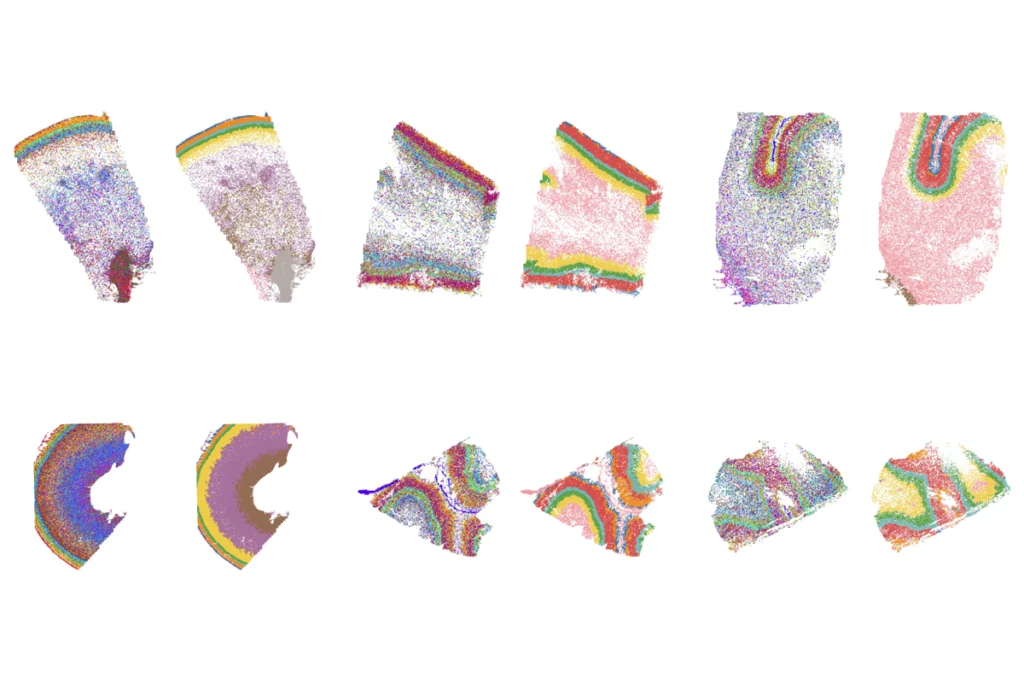
New human brain atlas charts gene activity and chromosome accessibility, from embryo to adolescence
The resource profiles millions of single cells across the developing cortex, revealing when, where and how certain cell types emerge and illuminating possible origins of autism and other conditions.
Understanding fragile X syndrome
Just in time for Fragile X Awareness Month, The Transmitter rounds up notable coverage.
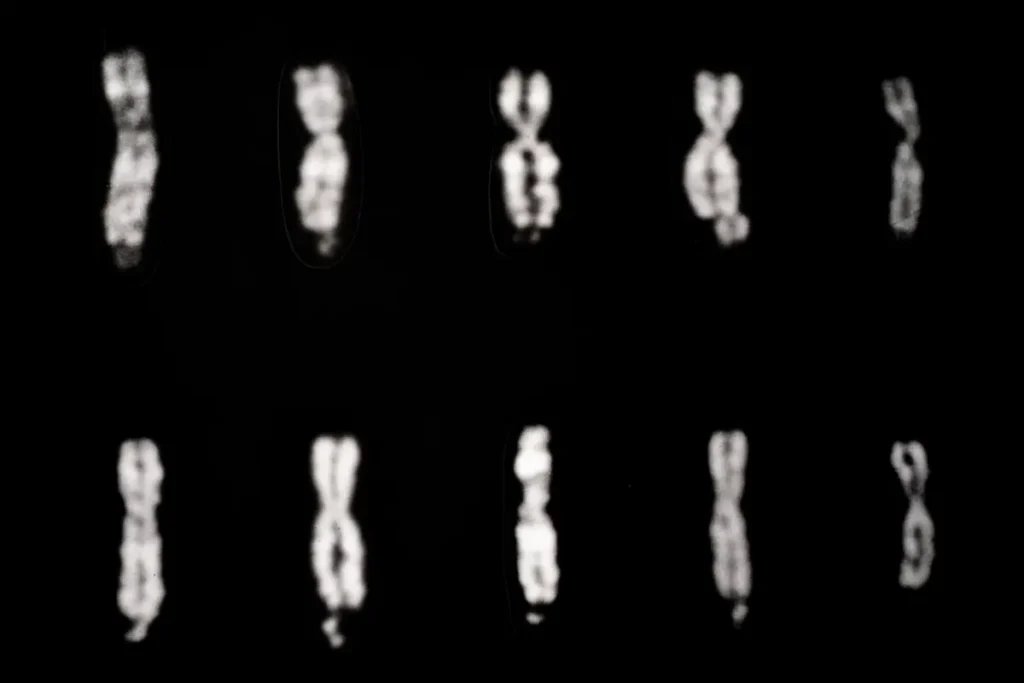
Understanding fragile X syndrome
Just in time for Fragile X Awareness Month, The Transmitter rounds up notable coverage.
Faked results lead to retraction of high-profile cancer neuroscience study
An investigation found that the experiments required more animals than the scientists had purchased.

Faked results lead to retraction of high-profile cancer neuroscience study
An investigation found that the experiments required more animals than the scientists had purchased.
Going deep: The Transmitter’s top long-form stories in 2023
Our favorite features and book excerpts from the past year delved into the neurobiology of cancer; problems with survey data; free will; mathematical minds; and questions around one startup’s quest to treat brain conditions with cell therapies.
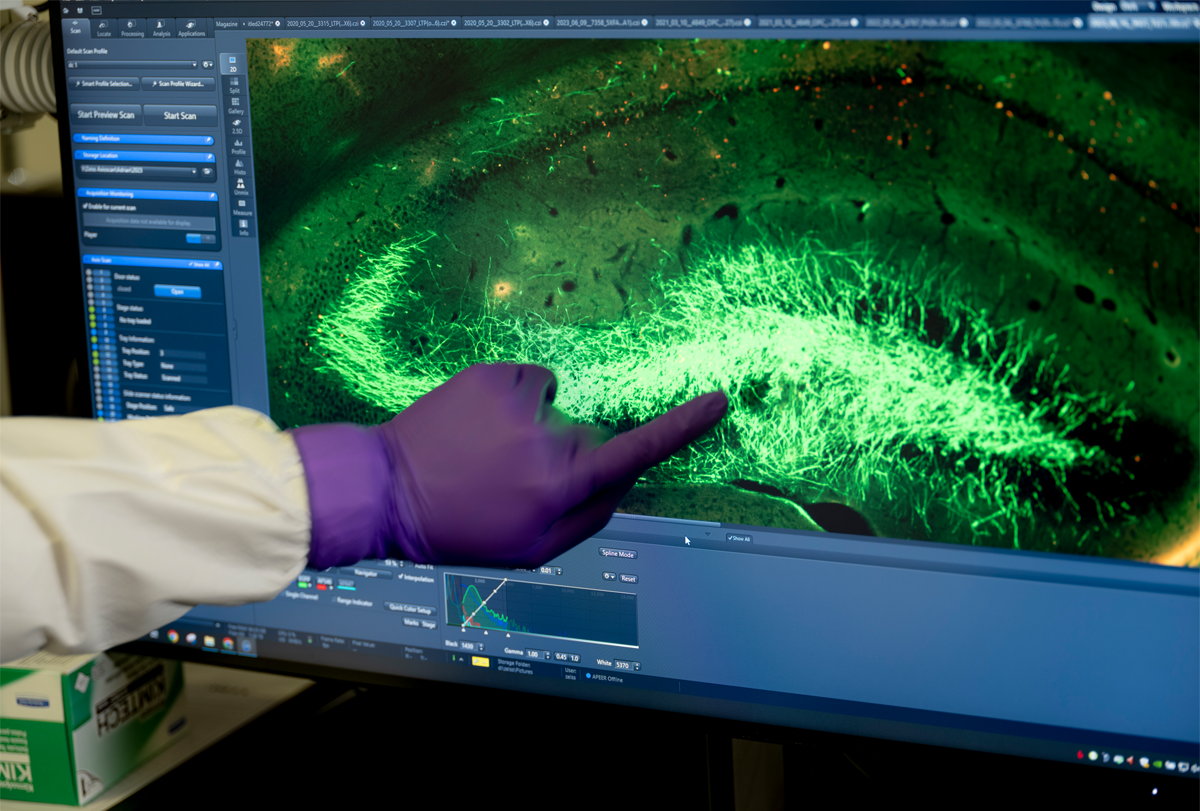
Going deep: The Transmitter’s top long-form stories in 2023
Our favorite features and book excerpts from the past year delved into the neurobiology of cancer; problems with survey data; free will; mathematical minds; and questions around one startup’s quest to treat brain conditions with cell therapies.
Making cancer nervous
Nerve cells in the brain and throughout the body can turbocharge tumor growth — a finding that not only expands conventional ideas about the nervous system but points to novel therapeutic targets for a range of malignancies.
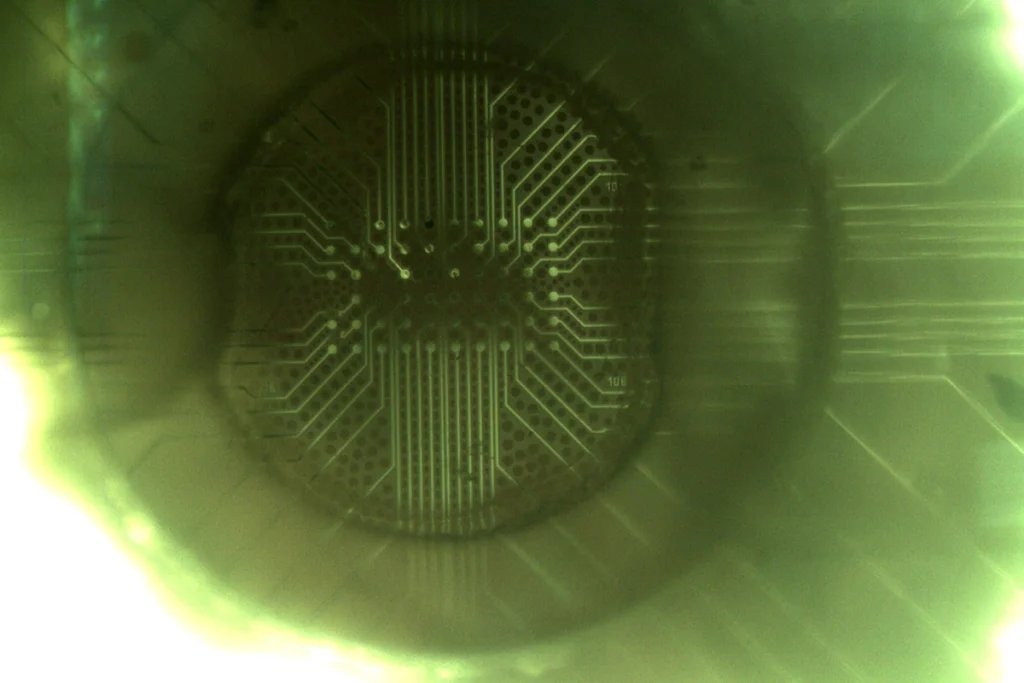
Making cancer nervous
Nerve cells in the brain and throughout the body can turbocharge tumor growth — a finding that not only expands conventional ideas about the nervous system but points to novel therapeutic targets for a range of malignancies.
Mitochondria mediate effects of PTEN mutations
Whole-genome sequencing data — which include information about mitochondrial DNA — offer clues to why mutations in the same gene can lead to autism or cancer.
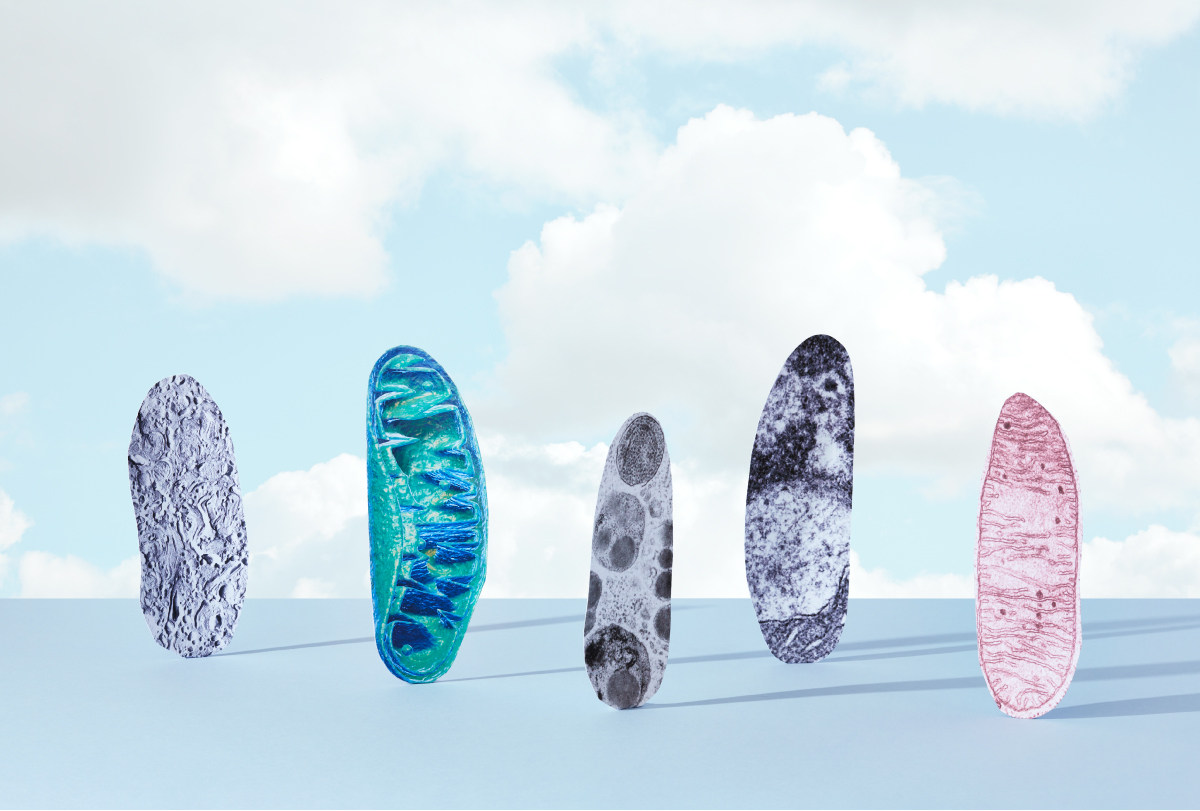
Mitochondria mediate effects of PTEN mutations
Whole-genome sequencing data — which include information about mitochondrial DNA — offer clues to why mutations in the same gene can lead to autism or cancer.
The cloudy connection between fragile X and cancer
People with the autism-linked syndrome lack a protein implicated in several cancers, but it’s unclear whether — or how — they are protected from malignancies.
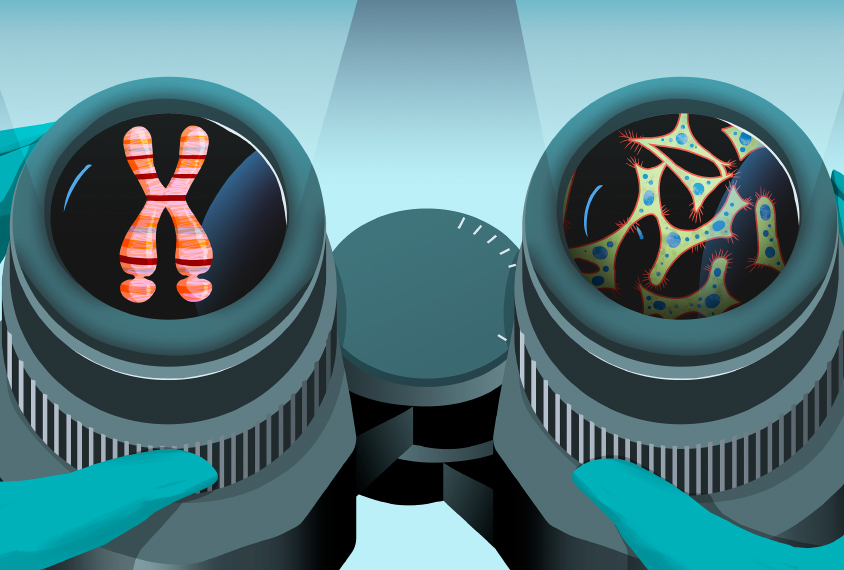
The cloudy connection between fragile X and cancer
People with the autism-linked syndrome lack a protein implicated in several cancers, but it’s unclear whether — or how — they are protected from malignancies.
Two groups of neurons govern autism-like traits in model mice
Together, the neurons are part of the corticostriatal circuit, which has been implicated in autism.
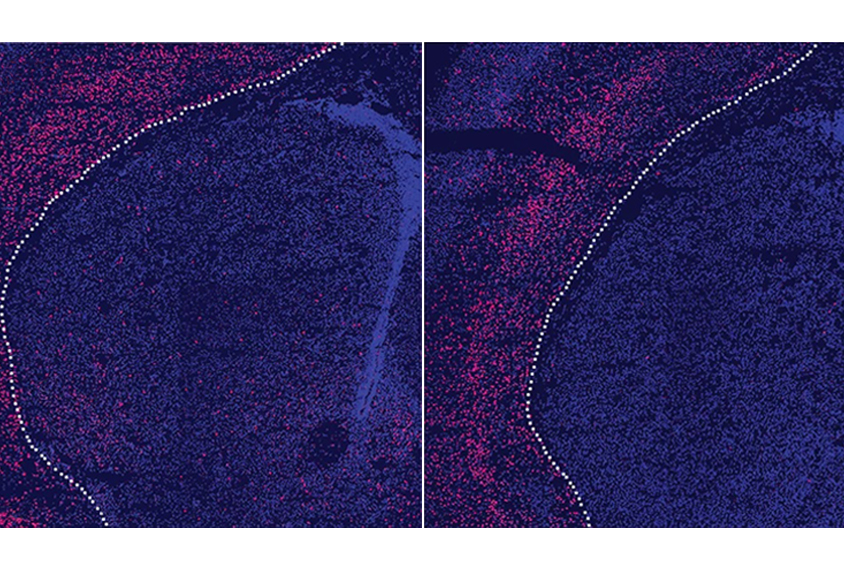
Two groups of neurons govern autism-like traits in model mice
Together, the neurons are part of the corticostriatal circuit, which has been implicated in autism.
Proteome map identifies more than 90 percent of all human proteins
Researchers expand on the already enormous progress made on the Human Proteome Project
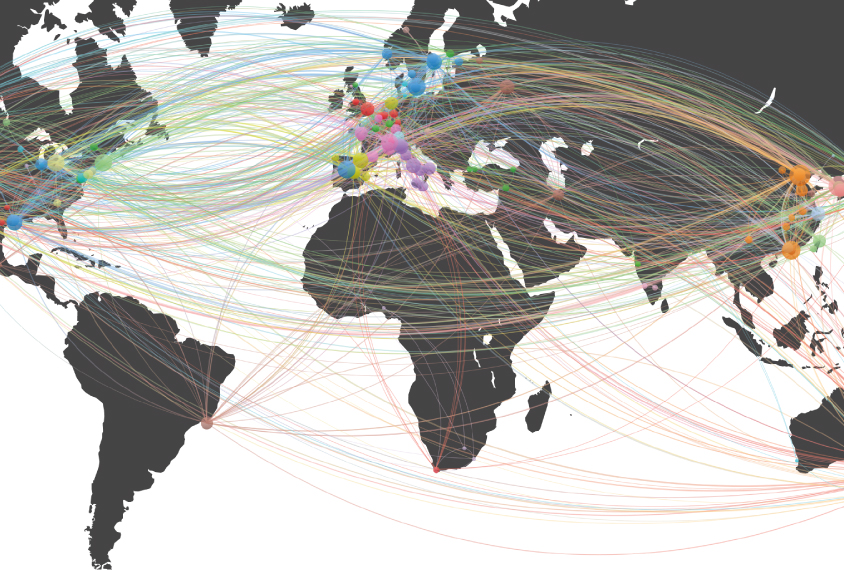
Proteome map identifies more than 90 percent of all human proteins
Researchers expand on the already enormous progress made on the Human Proteome Project
Explore more from The Transmitter
Smell studies often use unnaturally high odor concentrations, analysis reveals
It’s time to fashion olfactory neuroscience stimuli based on odor concentrations in the wild, say study investigators Elizabeth Hong and Matt Wachowiak.

Smell studies often use unnaturally high odor concentrations, analysis reveals
It’s time to fashion olfactory neuroscience stimuli based on odor concentrations in the wild, say study investigators Elizabeth Hong and Matt Wachowiak.
Developmental delay patterns differ with diagnosis; and more
Here is a roundup of autism-related news and research spotted around the web for the week of 14 April.

Developmental delay patterns differ with diagnosis; and more
Here is a roundup of autism-related news and research spotted around the web for the week of 14 April.
‘Natural Neuroscience: Toward a Systems Neuroscience of Natural Behaviors,’ an excerpt
In his new book, published today, Nachum Ulanovsky calls on the field to embrace naturalistic conditions and move away from overcontrolled experiments.

‘Natural Neuroscience: Toward a Systems Neuroscience of Natural Behaviors,’ an excerpt
In his new book, published today, Nachum Ulanovsky calls on the field to embrace naturalistic conditions and move away from overcontrolled experiments.